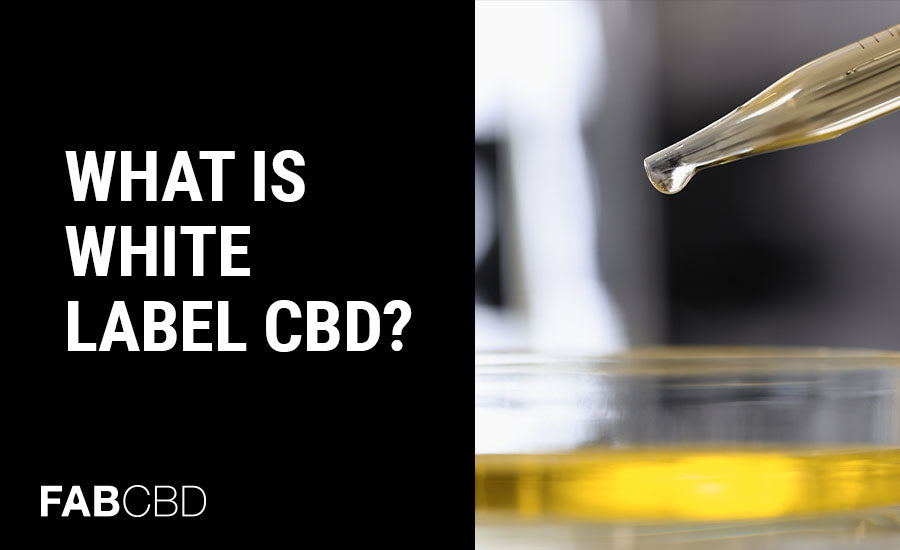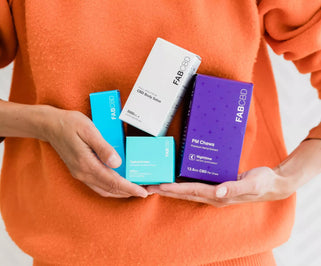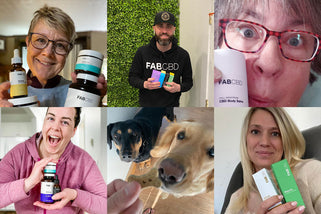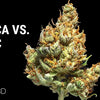With the rising popularity of CBD products, there has also come a rise in white-label and private-label CBD companies that produce products for others to sell.
In this blog, we'll go through everything you need to know about white-label CBD, the pros of using them, and everything you need to know before buying white-label CBD products.
Let's dive right in!
Defining White Label CBD
A "white label" business model allows businesses and entrepreneurs to purchase products from a manufacturer and rebrand them as their own, so they don't have to invest a substantial amount upfront to sell CBD and CBG products. Instead, manufacturers produce a wide range of CBD products, like CBD oils, gummies, balms, and more, ready to be stamped with the client's brand name and label design.
The Benefits of White Label CBD
Here are some of the benefits of buying white-label CBD products:
Lower Costs
Because it eliminates the need for in-house production and staffing, white-label CBD manufacturers offer a cost-effective option for any business looking to get started in the CBD market. White-label CBD products are usually made by large manufacturers with wide capabilities, giving you access to fairly affordable products without spending on extensive research, development, testing, and regulatory compliance.
Speed to Market
Because the products are already produced, white-label services take less time to hit the market and allow businesses to take advantage of trends in the shorter term while using pre-developed and tested formulations without having to create unique products from scratch.
Brand Development
White Label CBD allows companies to focus on more important areas, like building a strong brand identity as a CBD brand, giving excellent customer service, and focusing on sales and marketing efforts. CBD businesses can tailor the look and feel of their products to align with their unique brand identity while crafting a compelling narrative around their own brand.
Legal Considerations
Whenever buying from either white-label or private-label CBD products with the intent to sell, it's important that both the manufacturer and the business partner understand the legal landscape surrounding CBD, including state and federal laws.
The manufacturer must adhere to regulations and have their products third-party lab tested to reduce the risk of legal action and help establish a reputation of integrity and trustworthiness.
Keep these points in mind:
- Regulatory Compliance: Adherence to local, state, and federal regulations is non-negotiable in the CBD industry, and white-label CBD products must comply with the legal requirements of the jurisdictions where they are sold. This includes THC limits, labeling regulations, and adherence to any specific guidelines set by regulatory bodies.
- THC Content and Hemp Compliance: CBD products derived from hemp must adhere to the legal limit of THC (tetrahydrocannabinol), the psychoactive compound found in cannabis. In the United States, the 2018 Farm Bill set the threshold at 0.3% THC for hemp-derived CBD products to be considered legal. Make sure that any white-label products you choose meet these requirements.
- Lab Testing and Certificates of Analysis (COA): White label providers should conduct third-party lab testing and provide Certificates of Analysis (COA) detailing the product's cannabinoid profile, THC content, and the absence of contaminants to ensure the safety and quality of the products.
- Labeling and Marketing Compliance: White label CBD products should have labels that meet regulatory standards, including product formulation, CBD concentration, net weight, and any required disclaimers. They should avoid misleading marketing claims and unverified health claims about their products.
White Label vs. Private Label CBD
White-label CBD involves products that are already manufactured and just need to be branded. In contrast, private-label CBD involves specifically tailoring the product to specifications provided by the business partner.
Some of the perks of using white-label products are:
- Speed to Market: White-label products are ready-made, allowing businesses to bring products to market quickly without the extensive time and resources required for in-house development.
- Cost-Efficiency: By avoiding the expenses associated with research, development, and manufacturing infrastructure, businesses can enter the market with reduced upfront costs.
- Proven Formulations: White-label providers offer established formulations that have undergone testing and refinement, reducing the risk associated with creating entirely new products.
However, private-label products give you some advantages, including:
- Brand Customization: Private label products allow for extensive customization, from custom formulations to bespoke packaging, allowing businesses to be more involved in product development and create a brand identity that stands out in the market.
- Control Over Quality: Businesses have greater control over the entire production process, ensuring that products meet their specific quality standards.
- Exclusivity: Private label products are exclusive to the business, providing a competitive edge in terms of unique offerings and market differentiation.
At the end of the day, the choice between white-label or private-label CBD products will depend on the business's needs and goals.
What to Look for in a White-Label CBD Partner
When selecting a white-label manufacturer, you should consider these key factors:
- Product Range: Look for a white-label partner that offers a diverse range of CBD products, including tinctures, capsules, edibles, topicals, and more made out of full-spectrum and broad-spectrum CBD so you can cater to a wide array of preferences. Make sure they only use hemp of the highest quality for their CBD white-label products.
- Extraction Methods: Understand the extraction methods employed by your potential white-label partner. CO2 extraction is generally considered a clean and efficient method for extracting high-quality CBD.
- Business Reputation: You can research the reputation of potential white-label partners by checking reviews and testimonials and considering their track record and experience in the CBD industry.
- Regulatory Compliance / Third-Party Testing: Make sure that the white-label partner complies with local and national regulations regarding CBD production and distribution, such as being FDA-approved in the United States. You should also look for third-party testing on their products to verify the accuracy of CBD content and the absence of contaminants like heavy metals and pesticides.
- Scalability: Consider whether your potential partner can accommodate your business's growth and whether they can adapt to your evolving needs and the needs of the market.
Tips for Marketing White Label CBD
Here are a few tips to market your white-label CBD products:
Know Your Target Market
If you want to sell products, you need to know everything about who you're selling to and why they're buying it. Perform market research to grasp concepts such as demographics, consumer preferences and behavior, and market trends.
Use Digital Marketing
Maximize online visibility by leveraging SEO, PPC, and email marketing. Use relevant keywords in product descriptions, blog content, and meta tags, and develop quality content that educates and informs your potential customers. Platforms like Google Ads and social media advertising can also be very effective when promoting your CBD start-up.
Get Started with White Label CBD Today
Are you looking for a white-label CBD partner to tap into the CBD industry? Natural Supplement Manufacturers can help! Natural Supplement Manufacturers specialize in white and private label CBD and other supplements, catering to your specific business and market needs.
Visit the Natural Supplement Manufacturing website today to learn more.







